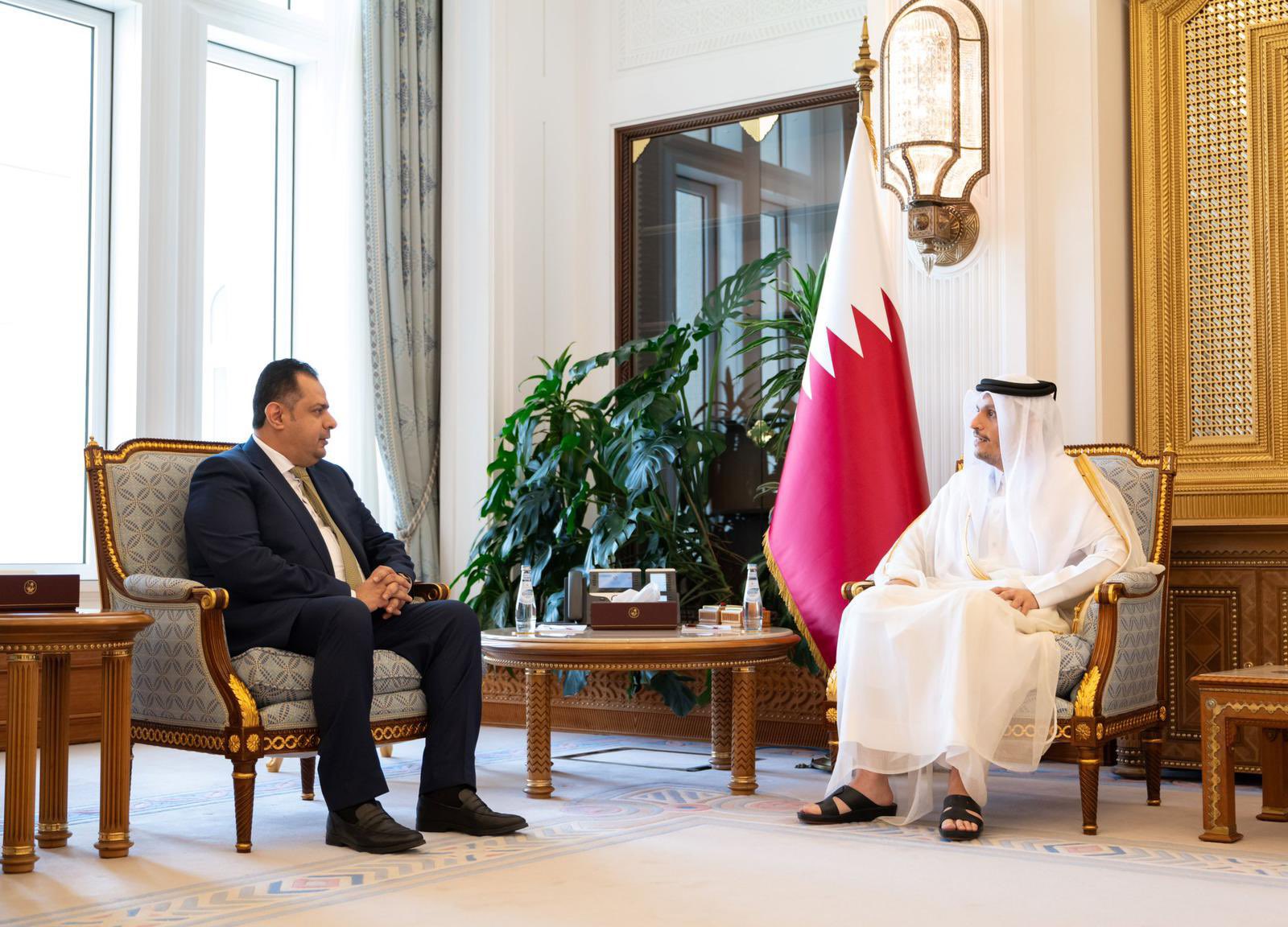At least 4.5 million people have been internally displaced as a direct result of Yemen’s conflict.
Qatar has reiterated its support for a Yemeni national dialogue to resolve the war-stricken nation’s years-long crisis during a meeting between both prime ministers in Doha on Sunday.
Discussions on the Yemeni crisis took place at the Amiri Diwan between Yemen’s Prime Minister Maeen Abdulmalik Saeed and Qatar’s Prime Minister and Minister of Foreign Affairs Sheikh Mohammed bin Abdulrahman Al-Thani.
The top Yemeni official is among a list of diplomats and leaders scheduled to attend the inauguration of the Expo 2023 Doha on Monday.
In a statement, Doha’s foreign ministry said the meeting’s agenda involved bilateral cooperation between Qatar and Yemen “and avenues to support and enhance them” in addition to developments on the ground in Sanaa.
“Prime Minister and Minister of Foreign Affairs reaffirmed, during the meeting, that the only way to solve the Yemeni crisis is the negotiation among Yemeni people based on the outcomes of the national dialogue, the GCC Initiative and the relevant United Nations Security Council resolutions, particularly the resolution No. 2216,” the statement added.
Sheikh Mohammed also expressed the Gulf state’s “enduring support for Yemen and the Yemeni people until they achieve their aspirations for security, stability, and development.”
On the same day, Qatar’s Minister of State for International Cooperation at the Ministry of Foreign Affairs Lolwah Al Khater separately met with the Special Envoy of the UN’s Secretary-General for Yemen Hans Grundberg in Doha.
The meeting between the Qatari and UN officials also dealt with Yemen’s worsening humanitarian situation.
“During the meeting, they discussed cooperation relations between the State of Qatar and the United Nations and the developments in Yemen. The meeting stressed the State of Qatar’s support for humanitarian and development projects in Yemen,” Doha’s foreign ministry said in a statement.
Qatar has long called for an inclusive Yemeni dialogue and a political resolution to permanently halt violence on the ground. The matter was highlighted during a speech by Qatar’s Amir Sheikh Tamim bin Hamad Al Thani at the UN General Assembly last month.
“We call for the crisis to be resolved in accordance with the resolutions of the National Dialogue, the Gulf Initiative, and the relevant Security Council resolutions,” Qatar’s amir said at the time.
Fragile peace talks
Since 2015, Yemen has been a proxy battlefield between the Saudi coalition and the Iran-backed Houthi rebels, following the latter’s capture of the capital Sanaa.
The deadly conflict killed an estimated 158,000 people and triggered the worst humanitarian crisis in the world. At least 4.5 million people have been internally displaced as a direct result of the conflict.
Last year, Yemen witnessed its first truce since 2016, resulting in the calmest period in years for the war-torn country. The UN previously said the ceasefire led to a 60% decrease in civilian casualties and an almost 50% drop in displacements.
Yemen has experienced a period of relative calm despite the expiration of the ceasefire late last year, especially amid talks between Saudi and Omani delegations with Houthi rebel officials.
The race for peace in Yemen appeared to gain momentum earlier this year after a China-brokered deal between Saudi Arabia and Iran, which led to the resumption of relations between the former regional rivals.
A Houthi delegation visited the Saudi capital of Riyadh in late September for five days of talks, marking the first such official visit to the kingdom since the war broke out.
However, last week’s Houthi drone attack along the Saudi-Yemeni border was feared to hinder the fragile peace talks. The Houthi attack killed a total of four Bahraini servicemen, triggering regional outrage and raising fears over a flare up in Yemen.







